
In a world that often emphasises the value of social connections, there’s an important distinction to be made between being alone and feeling lonely.
Many people associate solitude with a sense of isolation or sadness, but the truth is that being alone can be a fulfilling and rejuvenating experience. 😊
In this blog post, I will explore the nuances of being alone versus feeling lonely, understanding the importance of solitude, and embracing the positive aspects of both states.
Let’s get to it. 💕
The Difference Between Being Alone and Feeling Lonely:
Being Alone:
Being alone is a state of physical solitude, where you find yourself without the company of others. It can occur by choice or as a natural consequence of circumstances. Spending time alone provides an opportunity for self-reflection, relaxation, and personal growth.
It allows you to engage in activities that bring you joy, pursue hobbies, or simply enjoy a moment of peace. Being alone can be a deliberate choice, a time to recharge and connect with oneself. 🥰
Feeling Lonely:
Loneliness, on the other hand, is an emotional state that arises from a perceived lack of meaningful connections. It’s possible to feel lonely even in a crowded room if the connections are superficial or unfulfilling.
Loneliness is often characterised by a sense of emptiness, isolation, or a longing for deeper human connections. It’s a complex emotional experience that can impact mental and physical well-being. 😟
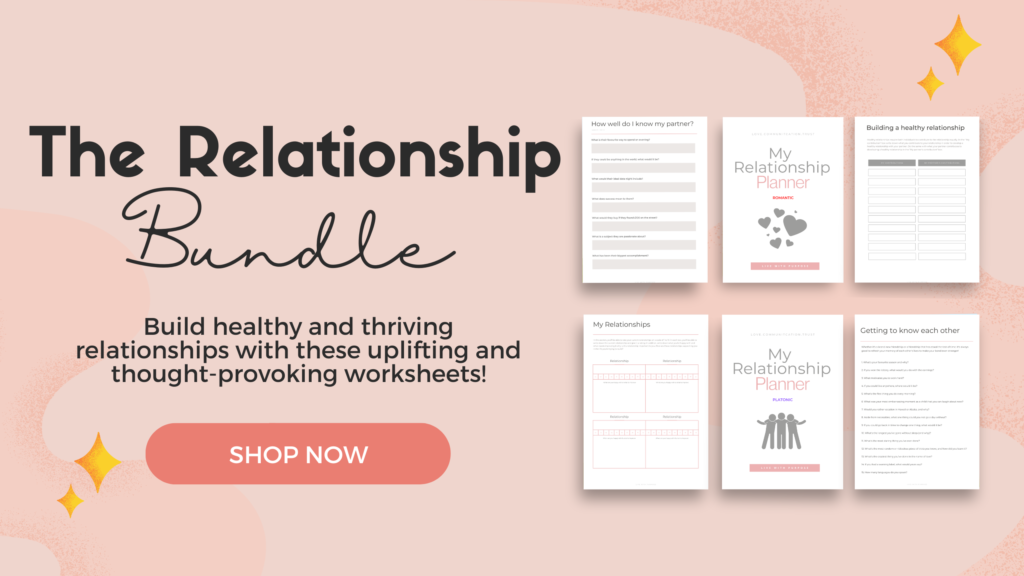
Embracing the Positive Aspects of Being Alone:
1. Self-Discovery:
Being alone provides an opportunity for self-discovery. It allows you to explore your thoughts, feelings, and interests without external influences. Use this time to reflect on your goals, values, and aspirations. Self-discovery is a crucial aspect of personal growth and can lead to a deeper understanding of oneself.
2. Independence:
Embracing solitude fosters independence. When you’re comfortable being alone, you become more self-reliant and less reliant on others for your happiness. This independence can empower you to make decisions based on your own needs and preferences, leading to a more authentic and fulfilling life. 🥰
3. Creativity:
Solitude often sparks creativity. When you’re alone with your thoughts, you have the mental space to generate new ideas, think critically, and engage in creative pursuits (yaay). Many artists, writers, and innovators find inspiration in moments of solitude, leading to the creation of meaningful and impactful work. 🎨
4. Rest and Rejuvenation:
Being alone allows for rest and rejuvenation. In a world filled with constant stimuli, taking time for solitude can be a form of self-care. It provides an opportunity to relax, recharge, and focus on activities that bring you peace and joy, contributing to overall well-being.
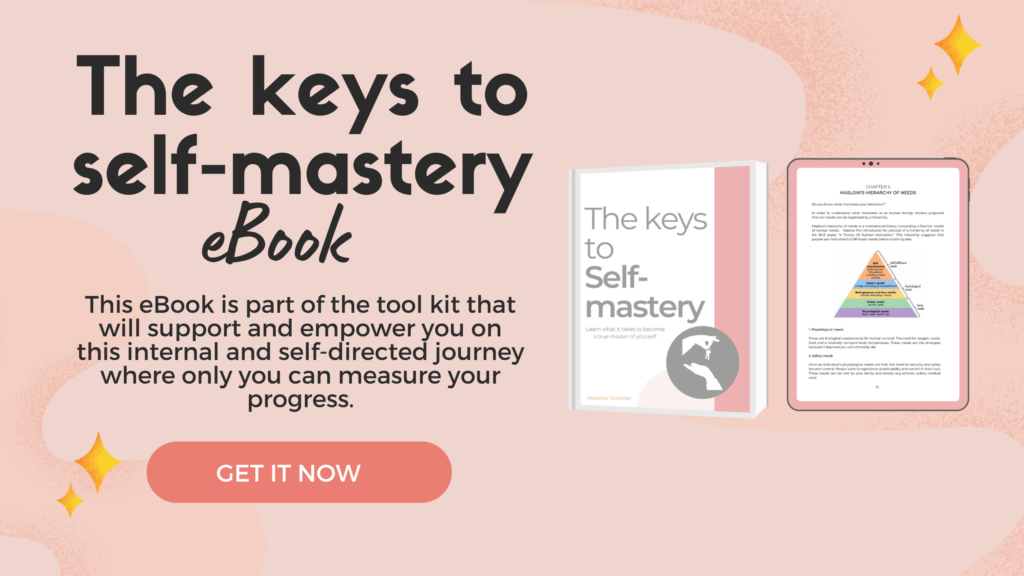
Addressing the Challenges of Feeling Lonely:
1. Cultivating Meaningful Connections:
If loneliness arises from a lack of meaningful connections, focus on cultivating relationships that nourish your soul. Seek out individuals who share your values and interests. Join clubs, organisations, or communities where you can meet like-minded people. Focus on getting yourself out there. Quality connections are often more fulfilling than a large social circle. 🫂
2. Volunteering and Giving Back:
Engaging in volunteer work or contributing to your community can alleviate feelings of loneliness. By helping others, you not only make a positive impact on the world but also connect with individuals who share a common purpose. Volunteering provides a sense of belonging and fulfillment.
3. Seeking Professional Support:
If loneliness becomes a persistent and overwhelming emotion, maybe consider seeking professional support. A therapist or counselor can provide guidance and a safe space to explore the root causes of loneliness. Addressing these issues with professional help can lead to a more fulfilling and connected life. 🫶
Finding Balance:
The key to a fulfilling life lies in finding a balance between being alone and fostering meaningful connections. Embrace solitude as a time for self-discovery, creativity, and rejuvenation. At the same time, actively cultivate relationships that bring joy and fulfillment. Recognise that both states are essential for a well-rounded and satisfying life. 💕
Conclusion
Being alone and feeling lonely are two distinct experiences, each with its own set of opportunities and challenges. Embracing solitude allows for self-discovery, independence, creativity, and rest. However, if loneliness creeps in, it’s crucial to address it by cultivating meaningful connections, volunteering, or seeking professional support. You are not alone. ❤️
Understanding the nuances between being alone and feeling lonely empowers you to navigate both states with intention and purpose. Ultimately, finding a balance between solitude and social connections contributes to a rich and fulfilling life. Embrace the positive aspects of being alone, foster meaningful connections, and savor the journey of self-discovery in this beautiful dance between solitude and companionship.
Pin this post for a reminder 📌 👇

Related Blogs
Things to Say “No” to for you to Live a Happier Life
How to Stop Settling For Less Than You Deserve
How to Become the Best Version of Yourself: A Guide For 20-Somethings
When our emotions get the best of us, it can be challenging to cope with them. The result is that we may act in ways that are not aligned with who we are as an individual.
These out-of-character moments are commonly referred to as “emotional breakdowns,” “episodes,” or “crises.” However you refer to these moments, coping with them effectively is key.
But what exactly is emotional regulation? 🤔
Emotional regulation is the ability to respond to your own feelings and the feelings of others in an effective and constructive way. It’s also known as “emotionally intelligent” behavior, and it’s something that goes further than just not having a temper tantrum or keeping your cool.
When we’re stressed, anxious, or just having a bad day, it can be challenging to keep our emotions in check. In the midst of all that chaos, we may feel like there’s no way to get a handle on our feelings and regain control of our sanity. 😬
But don’t worry — you aren’t alone in feeling this way. It can be challenging at any point in life to manage your emotions and find peace within yourself.
Learning how to practice emotional regulation strategies can help you identify when you feel an emotion and give you tools for handling those emotions appropriately in future situations. 😌
The inability to manage your emotions can negatively impact any area of your life, from work performance and academic endeavours to personal relationships.
with some practice and patience, you can overcome these challenges and continue growing as an individual.
The first step is knowing how to practice emotional regulation in your everyday life so you can manage your stress levels better when they flare up again. Here are some tips on how to bring them back under control:
Step 1: Become aware of your breathing
Your breathing pattern can be a clue as to whether you’re experiencing an emotion. For example, if you’re in a situation where you’re feeling anxious, you might notice that your breathing becomes shallow or rapid. 😮💨
Breathing exercises can help you calm down, regain your composure and regulate your emotions. Deep breathing is a great way to calm your body and bring your emotions back under control.
When you take slow, deep breaths, it sends a message to your body that everything is okay – your heart rate slows down, and your blood pressure drops. 🩸

Breathing Exercises
👉 Counting Breaths
This is a very simple breathing exercise. You’ll just count every time you exhale and put a number on it. Start with one and try to go up to 10. Once you hit 10, go back to one and keep going until you feel your anxiety level decrease.
👉 4-7-8 Breathing
This is a variation of the previous exercise. Place your tongue against the roof of your mouth, and breathe in for four seconds, hold your breath for seven seconds and exhale for eight seconds. Keep doing this until you feel calm.
👉 Mindful Breathing
This is one of the easiest ways to calm down. It’s a great beginner’s exercise, and you can do it anywhere. Close your eyes, take a few deep breaths and focus on your breath. This will take your focus off whatever is making you anxious and help you relax.
Step 2: Recognize what you’re feeling
This might sound too simple, but the first step to regulating your emotions is identifying the emotion you’re experiencing.
One way to help you do this is to use an emotion wheel. An emotion wheel is a chart that shows various emotions and their intensity levels. You can try out different wheels online and pick one that works for you. (Check out my feelings wheel here)
After you identify your emotion, spend a few minutes reflecting on it. Why do you feel the way you do? What situation led to the emotion you’re experiencing? Is there anything you can do to change the situation?
When you recognize an emotion, the next step is to figure out what needs to happen to keep it under control. 😌
Step 3: Identify the trigger
Once you’ve identified the emotion you’re experiencing and how intense it is, you can use that as a springboard to understand what might have triggered the emotion.
There’s no need to start a full-blown investigation, but taking a second to ask yourself what happened before the situation escalated can help you avoid the same problem in the future.
It’s important to note that most commonly, emotions don’t exist in a vacuum – one triggers the other.
If you feel overwhelmed or stressed out, you might find yourself feeling angry. You might be sad that your workload is so high and then feel guilty for being so stressed out. 😑
If you can identify the original trigger, you can figure out the best way to handle the situation to avoid these emotions in the future.
Step 4: Take a moment to breathe and relax
Once you’ve identified what you’re feeling and what triggered the emotion, you can use relaxation techniques to calm your body and mind.
They may not stop the emotion from happening, but they can help you get a handle on it as soon as it starts to take over.
You can try a few relaxation techniques, such as:
👉 Progressive muscle relaxation
This is a great way to relax your body. Focus on one part of your body at a time, and clench and then release that muscle.
👉 Visualization
This is a great way to calm your mind. Visualize yourself in a relaxing place, or think about something that makes you happy.
👉 Meditation
This is one of the best ways to calm your mind. There are many different types of meditation, and you can choose the one that works best for you.

Step 5: Find a healthy way to release the emotion
This is when you’re ready to let go of that emotion and move on. 😌
There are healthy and unhealthy ways to handle emotions. Healthy ways include talking to friends and family members, journaling, going for a walk, and using positive self-talk.
Unhealthy ways of dealing with emotions include drinking too much, engaging in risky behavior, and isolating yourself from the people around you. 😔
When you feel ready to let go of an emotion, try to find a healthy way to release it and move on. Journaling is a great way to express your emotions and get them out of your system.
If you feel like you’re holding on to an emotion, consider what’s holding you back from letting it go. Try and get all those feelings out on paper. ✍️
Coaching and Counseling Sessions
If you feel like you’re struggling to regulate your emotions, you might benefit from talking to a professional.
You can find a therapist or counselor that specializes in emotional regulation and ways to cope with negative emotions. 🧑⚕️
You can also try online therapy and see if it helps you feel better. If you’ve tried all of the above and you’re still struggling to keep your emotions in check, therapy might be the best option for you.
A therapist can help you learn new techniques for regulating your emotions and improving your coping skills.
You can also work on identifying unhealthy thought patterns and behavior patterns and start to change them so that you feel better overall. 💕

Managing Expectations
Are you expecting too much of yourself? Sometimes, our expectations of ourselves are too high, and this can cause emotional frustration. 🤯
How can you regulate your emotions when you’re expecting too much from yourself? Here are some tips:
👉 Accept your imperfections
We are human, and we all have faults. You cannot be perfect 100% of the time, so don’t expect yourself to be. Accept your imperfections, and you’ll feel less frustrated with yourself.
👉 Take care of yourself
You cannot be 100% there for yourself and other people if you’re not taking care of yourself first. You have to look after number one.
👉 Be thankful
Be thankful for all the good things in your life. This will help you stop focusing on the negative and appreciate what you have.
👉 Avoid negative self-talk
Don’t put yourself down. You are enough just the way you are.
How to practice emotional regulation – Conclusion
Emotional regulation is an important part of being an adult. It’s important to understand your emotions and how they affect you as well as others around you.
However, not all adults are able to successfully regulate their emotions, especially if they have had little experience in the past. If you’re having a hard time regulating your emotions, don’t worry – it’s not something that happens overnight. 🤷♀️
It takes practice, and it takes patience. You can improve your ability to regulate your emotions by becoming more aware of your own feelings and those of others, identifying triggers and practicing techniques like journaling and meditation. 🧘♀️
By practicing emotional regulation techniques, you can develop techniques for managing stress and negative feelings so that they no longer control you.
Pin this post for a reminder 📌 👇

Related Blogs
Letting Things Go: It’s Easier Than You Think
What is Self-Efficacy & Why is It Important
How to Overcome Fear & Get What You Want
As claimed by the renowned coach and speaker Tony Robbins, success and happiness can be found by meeting the 6 human needs that are fundamental to human beings.
These six basic, universal needs make us tick and drive all human behaviour.
Combined, they are the force that makes us do the things we do. We all have the same six needs, but everyone ranks these needs differently and the way you rank these needs is the reason you are the way you are as a person. 😊
A lot of our behaviours are based on which of our needs are -or are not- being met. Depending on which of the human needs are foremost in your personality, you could be spending your time consciously or subconsciously trying to meet one or two of these needs.
If you don’t succeed in meeting your needs this could result in negatively impacting your well-being and you will feel unfulfilled.

The key is to develop greater awareness of the six essential human needs and why we do what we do. We can then be able to consider other ways to meet these needs in a more resourceful way and create harmony within our lives.
Knowing which of these six needs is your primary motivator is crucial to finding out which drives you.
It can also help by giving you a better understanding of your triggers which puts you in better standing to learn how to manage your emotions.
The top four needs in the list below shape our personality. We all find ways to meet these needs, whether it’s working hard to meet them, or creating stories in our minds to rationalize them.
The last two (growth and contribution) shape our spiritual needs, these are rare – not everyone meets these.
When all these needs are met, we then truly feel fulfilled.
So let’s take a look at these six essential human needs:
1. Certainty: Assurance you can avoid pain and gain pleasure
The first human need is certainty. This is one of our top human basic needs as you need to feel secure and safe about the future.
It’s the need for basic comfort, the need to avoid pain and stress, it’s the need to feel in control and to know what’s coming next. Our need for certainty is a survival mechanism.
In order to live a life of certainty, your life would need to stay EXACTLY the same, which we all know is practically impossible. 🤨
So, the closest thing to living a life full of certainty is by artificially controlling your environment by changing your expectations or by avoiding new situations and people. This process provides you with the certainty that you will avoid pain or gain pleasure, which then fills the basic human need for certainty.
Also, this is where your real “risk tolerance” comes from!

2. Uncertainty/ variety: The need for the unknown, change, new stimuli
Do you like surprises? If you answered “yes” or maybe a bit more ecstatic like “yes Heather of course I do, who doesn’t!?” I’m sorry to say this, but you’re kidding yourself. 😬
You like the surprises that you WANT.
The surprises you don’t want = PROBLEMS.
However, when these problems arise you need to be able to deal with them appropriately. It’s important to understand the beauty of uncertainty, those that put this need at the top of their basic needs usually take it to an extreme.
They engage in frequent job or relationship changes for the sake of variety. Some even take unnecessary risks just to get that burst of adrenaline they crave.
If uncertainty is one of your top six needs you will be unafraid of taking risks and enjoy the world of the unknown.
3. Significance: Feeling unique, important or needed
We all want to feel needed, important and special. So how do we get significance.
If significance is among your top six needs then part of that need includes receiving recognition. This may translate into the want to be seen and heard – in short you want to be noticed. You measure significance by what you believe makes you unique. 💁♀️

Whether it’s earning billions of pounds, having over 100 tattoos or having the most problems in your life.
A lot of big brands use the power of significance by my making their consumers feel special.
They know that people will pay for anything that they believe is “the best” or anything that makes them stand out from the crowd.
4. Love/connection: A strong feeling of closeness or union with something or someone
When we love completely we feel alive. When we lose love the pain is so great that we settle for connection, the crumbs of love. 💔
If connection/love is your top human need, you’re constantly seeking out a close relationship with someone or something. This can lead to some amazing fulfilling relationships, but it can also cause you to sacrifice self-care (a big no-no) in order to take care of others. 🙅♀️
You can get that sense of connection/love through intimacy, friendship, walking through nature, or prayer.
( If you’re thinking of your pet then yes, they count too!) 🐕
5. Growth: An expansion of capacity, capability or understanding
If you’re not growing, you’re dying.
If your relationship isn’t growing, if your business isn’t growing, if you’re career isn’t growing, if you’re not growing, it doesn’t matter what you have externally (how many friends you have, how much money you have, how many people love you) you will never experience real fulfillment.
Those whose top need is growth are always striving to be better and learn more. They are usually better at their jobs but tend to move on quicker than others once they’ve reached the full potential of their position.
Though their constant striving for betterment guarantees they will never be bored they’re more likely to be perfectionists and neglect the relaxation needed. 😬

6. Contribution: A sense of service and focus on helping, giving to and supporting others
You may have heard Tony Robbins say this before, “The secret to living is giving”. Those who experience contribution as their top need knows this better than anyone.
If you have a need to contribute you are more likely to make a big difference to your community and the people around you. 👨👩👧
What’s the first thing you do when you get good or exciting news? You call somebody you love to share it with. Sharing enhances everything you experience.
Life is about creating meaning and meaning does not come from what you get it comes from what you give. Essentially, it’s not what you get that will make you happy long term, but rather who you become and what you contribute will.
By better understanding which of the six essential human needs is your driving force, you can set goals for yourself and implement positive behaviours to help you achieve those goals.
These are the 6 human needs that influence your behaviour.
What is your number one human need?
Pin this post for a reminder 📌 👇
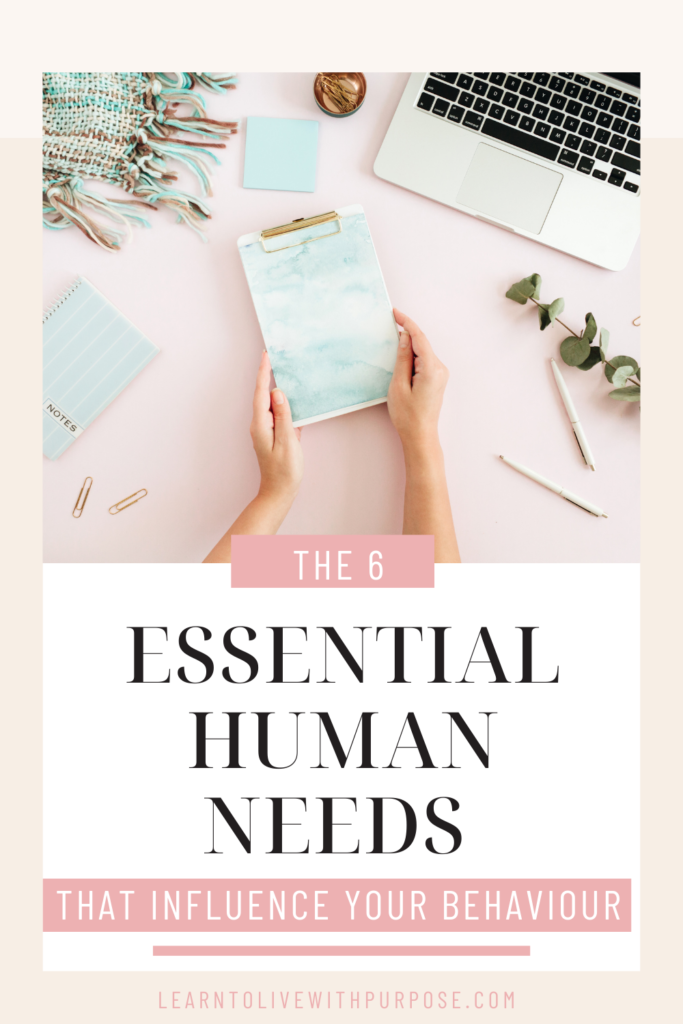
Related Blogs
How to raise your standards and live your best life
Do you ever wonder what it takes to achieve success? Many successful people share similar daily habits and routines that are integral to their success.
Having a daily routine can make us feel more in control of our lives and allows us to make time for the things that really important. People who tend to “wing” their day because they have no schedule to adhere to usually feel stressed, overwhelmed and uneasy.
No two people are the same and the habits of successful people are a mixed bag but there are some consistencies across the board and it’s those habits that are going to help you live a successful and fulfilled life.
Packing your day with these 10 daily habits will help you be more productive, feel more in control and put you on the right track on living your version of success.
“We are what we repeatedly do”
Now let’s get into the top 10 daily habits of successful people. 😊
This post contains affiliate links. Read my full disclosure policy here.
1. They wake up early
Waking up early gives you more time to work on yourself and your goals. When you’re picking the right time to wake up in the morning you have to factor in your current activities in both your personal life and professional life E.g. if you’re a constant flyer who is always jet-lagged, you’re going to find it extremely hard to consistently wake up at the same early hour every day. 😧
In order to wake up ready to go and take on the day it takes more than just setting an alarm and praying that your finger isn’t going to press the snooze button.
When you wake up every day at the same time your body becomes conditioned to that time and regulates your sleep patterns accordingly. Your body will actually start waking up before your alarm sounds off!
Here’s a couple of ideas to think about in order to make waking up earlier that little bit easier:
👉 Don’t make a drastic change in time at the beginning
If you usually wake up at 10am and you want to start waking up at 4:45am trying to do that straight away instead of cutting back gradually is setting yourself up for failure. Start slowly by putting your alarm 15-30 minutes earlier for a couple of days until you reach your goal time.

👉 Put your alarm clock far away from you
By far away I don’t mean out the room where you can’t hear it 😂 just put it far enough where you have to walk in order to turn it off, and if you share your bed with someone you could be more likely to run or walk briskly which is even better at keeping you awake. Once you’re up, stay up!
👉 Go to bed earlier
If you’re used to going bed late then you have to break that habit by entering a “wind-down” routine even when you don’t feel tired. Try reading, yoga or meditating to get you in a calm and relaxing state. Don’t forget that your general physical fitness greatly impacts your sleeping habits.
Tom Corley an Accountant and Financial Planner surveyed 233 wealthy individuals, mostly self-made millionaires about their daily habits.
Nearly 50% of the self-made millionaires in Corley’s research got out of bed at least 3 hours before their workday actually started. Many of them used this extra time to work on their own personal projects or exercise.
There is no better feeling than knowing everything you need to do for the day is already done because you accomplished everything you needed to do in those extra hours in the morning.
2. They plan their day
The first step of planning your day is to clearly define what you want to get out of it.
It’s best to plan your day the night before (preferably part of your evening routine) so you wake up knowing exactly what you have to do without any faff!
Nothing worse than waking up and going about your day to realise you haven’t done anything that you told yourself you would do.
Get organised!
Get yourself a planner and WRITE STUFF DOWN. Your brain has no interest in trying to remember everything you said over the past 24 hours. Your success is dependent on what you manage to get done day in and day out.
Imagine what you could achieve if you plan your day with only high leverage activities with no time-wasting whatsoever.
If you actually follow through with your daily plans not only will you hit your goals in a timely manner, you’ll achieve your version of success much faster.
RELATED: Ready to start planning out your day properly? Then check out the Goals & Planners Printable Bundle
3. They eat healthily and exercise
How many times has the thought “I’ll do it tomorrow” crossed your mind when it comes to eating healthy and exercising?
Probably more than a 100 times right? 😂
Having healthy habits such as eating healthily and exercising help your overall wellbeing and make you look and feel good.
These habits are hard to develop without changing your mindset first, but if you’re willing to make sacrifices to better your health the impact will be significant regardless of your age or physical ability.

4. They focus on high-leverage activities
High-leverage activities get you the results you need more effectively (less expenditure of time, money or energy).
It doesn’t matter how productive you think you are if you’re not producing results. Don’t waste your time it’s your most valuable asset.
Focusing on the activities in your day that produce the most valuable results will set you up for success.
Staying focused isn’t something that comes naturally to a lot of us, it requires a lot of willpower that must be practiced.
If you lack the discipline to control your focus eventually distractions will consume your precious time.
This point definitely had to be in my list of daily habits for successful people because you can be the most time-efficient, organised person in the world but if you’re not focusing on the right activities that are going to get you closer to your goals, you’re going to suffer.
Progression = Happiness ❤️
RELATED: Learn what your high-leverage activities are by gaining clarity on what you want out of your life by using our PERSONAL GROWTH BUNDLE
5. They surround themselves with positive people
Surrounding yourself with positive people with positive outlooks will create a better influence in your life. Think about the people who you spend the most time with and write down their qualities.
Are they lighting your fire or dowsing your flame? Think about how you feel when you are around them.
🤔 Do they support you and help you reach your goals?
🤔 Do they make you feel full of life when you’re with them?
🤔 Can you turn to them when you feel down?
🤔 Do you feel happy when you see their name pop up on your phone?
If you’re able to respond yes to the above questions, you’re probably surrounded by the people you need to be.
6. They Invest in self-care
It’s easy to push aside self-care in our busy lives or not make it a high priority. Self-care is any action or behaviour that individuals take for themselves to protect, maintain and improve their health and wellbeing.
Taking care of yourself daily is essential, it allows you to become the best version of yourself and therefore be better for the people around you. Here’s a list of daily self-care activities to consider for optimal performance:
✨ Exercise/Yoga
✨ Develop Morning, Afternoon & Evening routines
✨ Make sure you get enough sleep
✨ De-clutter
✨ Have a pamper day
✨ Laugh often
✨ Express gratitude
✨ Meditate

7. They never stop reading
You should never stop gaining knowledge, everything you read fills your head with new bits of information that can make you better equipped to tackle challenges.
Reading also improves your focus and concentration. The average person in a 5-minute time span will divide their time between texting, checking emails, scrolling through social media and interacting with people around them. 🤯
This lack of concentration causes stress levels to rise and definitely lowers your productivity. However, submerging yourself into a great book shuts off the outside world, only you and the book exists. Bliss. 😌
Heather’s Top Tip: You can’t remain at the same level of knowledge you have right now and expect your life to elevate to the next stage. Immerse yourself in books that are going to help you grow in the areas of your life that you wish to improve.
8. They look at their goals
Vividly describing your goals in written form is strongly associated with goal success.
Look at your goals every day, they are an important part of your life. Reminding yourself of your daily goals is an integral part of any successful routine because it allows us to analyse where we stand on a day-to-day basis.
Long-term goals are reinforced by our daily goals and milestones, which push us closer to our dreams. Take your time to reflect and adjust your daily goals accordingly to make sure that you’re still on track.
Get those goals down!

9. They laugh Often
Inevitably things are going to go wrong in life that there’s nothing you can do about. It’s your choice whether you dwell in misery or find the humour/positivity in situations.
Learn to laugh at yourself and not take things too seriously. 😂
The positive feeling you get after laughing remains with you even after the laughter subsides, and don’t forget that laughter is 100% contagious, just hearing someone laugh (especially if it’s a really weird laugh) readies your brain to smile and join in on the fun.
Yes, take things seriously when they need to be serious, but don’t miss out on the tiny joys in life. You’ll regret it.
10. They exercise positive self-talk
Every day is a fresh start, and everyday you should start off with a self-talk to remind yourself to “boss” the day.
Self-talk in the most powerful form of communication as it can either empower you or defeat you internally.
What you say to yourself determines how you feel about yourself. Imagine looking at yourself in the mirror repeatedly saying positive things about yourself and positive thoughts for the day.
You won’t be able to help but smile or even possibly laugh which I’m definitely guilty of (whenever I smile to myself I always end up laughing for some odd reason).
You’ll feel a sense of empowerment and confidence that you’re ready to take on the world, and that’s because you can. 💪
I really hope you enjoyed reading these 10 daily habits of successful people! Let me know in the comments which ones you do. (I’m very intrigued)
Pin this post for a reminder 📌 👇

Related Blogs
How to find and live your purpose in life
Have you ever said Yes to something you ever wanted to say No to?
We believe that we always have to say yes to opportunities that come our way. We fear that saying no will lead us to miss out on new experiences, money and fun. However, saying yes is not always a good use of your time.
When you ask someone how they are 95% of the time they will answer with some version of “busy” whether it’s “It’s so hectic right now” or “I’ve been crazy busy” being busy has subsequently become a badge of honour. It implies we are important and in demand, but if you really are too busy all the time then you’re most likely not saying No enough.
We say yes in our personal lives all the time. When a friend asks us to go out while we still have other things to do, we say yes. When a family member asks for a favour that will cause obstruction to our day, we say yes.
Many of us struggle to say no because of the fear of rejection or the uncertainty of what the other person may think or say.
You would rather upset yourself than deal with the repercussions of saying No.
Did that sentence hit a nerve? If it did keep reading.

We can get so used to saying yes and pleasing others that we don’t even know what we want. If your life is tightly packed with other people’s requests that you don’t have the time for, it’s time to make a change.
Embrace the power of “No” so you can truly live out your full potential. Here is a list of things to say “No” to so that you can live a happier life!
1. People picking your brain constantly
I’m definitely pro-community and collaboration but when you make yourself too available, people are more likely to take advantage of you. Of course, you should help people and not be overly competitive, but this should be done in moderation.
Think about all the times you weren’t able to get on with any of your tasks because you kept helping other people with theirs. Make a conscious decision to make yourself a priority.
To help people out without having to sacrifice a lot of your time is to refer other people of value to the people who like to pick your brain over specific topics.
You can also see this as a business opportunity by getting paid for your knowledge. Whether it’s setting up a membership program or offering 1-1 services.
2. Getting upset over things you cannot control
There are things in life that are inevitably out of your control. It is your choice to dwell in the fact that you cannot control what is happening – whether it’s about the government, the economy, or even the weather. You have the power to control your state. If you’re upset, you have to power to take yourself out of that state even if you don’t feel like it.
This isn’t about giving up or faking it till you make it, it’s about knowing you’re going to get through whatever comes your way.
Giving in to worry or the illusion that you can control the outcome can only result in stress and is a waste of your valuable time.
Say “No” to the belief that you can be in complete control of everything in your life. Say “No” to the undue stress that comes from trying to change outcomes that are not up to you. You’ll definitely save yourself a lot of anguish.
3. Doing things that don’t get you to where you want to be
Before accepting opportunities that come your way ask yourself “is this going to put me a step further in becoming who I want to become?”
There are a lot of mentoring opportunities, career developments, collaboration opportunities and many more potential lists of activities and events to get involved with in your life.
Nonetheless, just because something may seem like a good idea to do it doesn’t mean that it is the right fit for your vision.
Avoid actions and events that are not aligned with your vision of yourself. Remember to leverage your time because you can’t make anymore. So, use it wisely!
Having trouble with your vision? Check out the FREE How To Live With Purpose mini-course
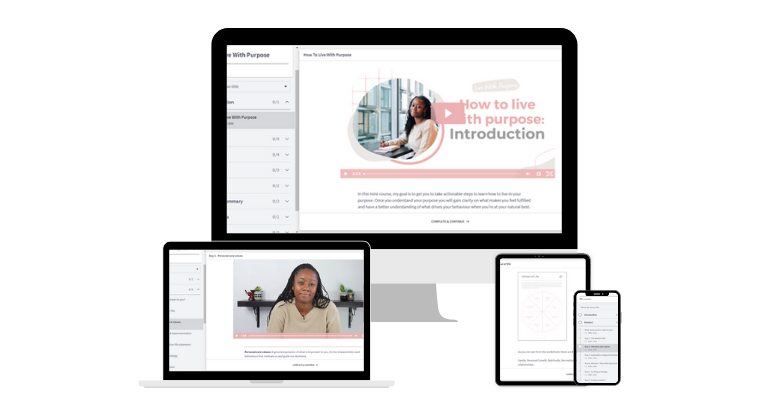
4. Allowing yourself to procrastinate
Procrastination is one of the hardest things to say “No” to. It’s easy to get caught up in the planning of something rather than the execution. Without execution, your idea will remain as an idea.
No amount of wishing, manifestation or praying is going to make your dreams fall in your lap.
Procrastination is the root of unachieved dreams. The sense that there’s enough time to get things done can be deceptive, it can be the difference between celebrated success and failed goals.
Procrastination is not only delaying tasks but by doing things that are not a priority on your list and not using your time productively by spending your energy and efforts on tasks that are neither making you progress on your goals or making you happy.
Strictly say “No” to distractions and time killers.
5. Negative self-talk
Negative self-talk has many forms and can affect us in some pretty damaging ways. It can sound grounded (“I don’t think I’ll be good at this so I should avoid doing it to protect my own safety”) or it can sound terrible (“No matter what I do, it’s never right”).
Negative self-talk is any inner dialogue you have with yourself that may be limiting your ability to believe in yourself and your abilities. Not only can negative self-talk distort how you see yourself, but it can also stunt your personal growth.
Ways on minimising self-talk:
👉 Stop the thoughts in its tracks
Be mindful when you’re thinking negative thoughts. Imagine a stop sign in your mind or verbally say “stop” to yourself and change your thought pattern to a positive one.
👉 Cross-examine what you’re saying to yourself
When you catch yourself talking negative, ask yourself “how true is this?”. The majority of negative self-talk is an exaggeration and calling yourself out on it can help take away the damaging influence.
👉 Stop expecting perfection
Nobody is perfect, so expecting perfection when you’re just starting out on a new project or thinking that you’re exempt from failure is only going to set you up for a definite fall. Flaws and failure are a part of life and once you move forward in spite of them you will become happier and more self-confident.

6. Burning yourself out
You’re no use to yourself or anybody else when you’re completely shattered. Being burnt out results in low productivity levels, poor work quality and crankiness. It just becomes one bad thing after another if you continue to ignore your mind and body when it screams for rest. There’s no benefit to working that much.
You usually end up getting burnt out by saying yes to extra work that you really don’t have time for. You should see breaks as a necessity not expendable time to do extra work.
Figure out how much you can say yes to on a daily and monthly basis and figure out how much time to set aside for breaks. (E.g. will you take a 15-minute break every 60 minutes or 90 minutes?) Say No without hesitation to any work that will interfere with your allotted break time.
In summary
Saying “Yes” as well as saying “No” to the right things is a skill that everyone has to master. Give yourself permission to say “No” without having to explain yourself.
You won’t be able to relive this life again so make the most of the time you’ve got now and spend it doing the things you love as well as helping others.
Well, this was my list of things to say “No” to for your to live a happier life. 🤗
I hope these ideas will inspire you to create your own list and start implementing it straight away.
What do you want to say “No” to for a happier and simpler life this year?
Pin this post for a reminder 📌 👇

Related Blogs
The ultimate guide for coping with change
Firstly, let’s establish the difference between what a habit is and what a routine is. For the longest time I didn’t think there was a difference as I thought both words meant “doing the same thing over and over again without thinking about it” but I was definitely mistaken.
Habit: An action we do often in a regular and repeated way
Routine: A regular way of doing things in a particular order
To call a behaviour a habit it needs to be undeliberate action. If the behaviour requires a high degree of intentionality and effort, it’s definitely not a habit. We all possess both good and bad habits that we barely give a thought about because … well… they’re habitual. However, have you ever thought about why you may have this habit?
We consider good habits those that are beneficial to our physical and mental health. Such as waking up early and going for your daily run and writing in your gratitude journal.
We consider bad habits those that are not beneficial to our physical or mental health such as smoking or unhealthy eating. Most of our bad habits are caused by stress and boredom.
Hands up if you’ve ever got up and went to the kitchen to go get something to eat just because you were bored… I know I sure have.
Having a routine is important because it can help us cultivate positive daily habits and prioritise important practices such as self-care, exercise and maintaining a healthy balanced diet.
No matter what annoying or stressful thing happens during the day, knowing that you’ll be having your evening meal at 6pm and watching your favourite show at 7:30pm can bring real comfort to our lives.

Everyone has their own special routine. You could probably list 5 things that you do every morning and evening without fail. It’s the tiny habits that we form in the course of our lives that makes us different from the people around us. These tiny habits may reveal some insights into your personality traits and how you approach life. I’m going to list a few common habits and what it may say about your personality if you do them!
Your eating habits
Yes! The way you eat actually reveals your personality and behaviour tendencies (Who knew huh?)
Here are the personality traits Ms.Boghossain ( A behavioural food expert) marks each type of eater.
Fast Eaters – Impatient, Ambitious, goal orientated
Slow Eaters – Sad, Confident, low energy
Picky Eaters – Anxious, neurotic, detailed
If you’re someone who likes to separate different foods on your plate you’re most likely very detail-orientated and very cautious in your everyday life.
Think about the last meal you ate. What category do you fit in?
Your punctuality
Are you one of those people who say “I’m on my way” but really you’re in the shower wondering what on earth you’re going to wear. Or are you the person who doesn’t need to send the “I’m on my way” message because you’re already at the meeting point waiting for people to arrive?
(I’m defo the second one)
Does our attitude towards time and punctuality say anything about our personality? Indeed, it does.
Research suggests that punctuality is a matter of preference that’s linked to a person’s innate behaviour trait.
Often/always being punctual shows:
⭐You can organise your time
⭐You are dependable.
⭐You are a realistic thinker
⭐You have discipline
Often/ Always not being punctual shows:
👉 You are disorganised
👉 More likely to be a daydreamer
👉 More emotionally driven
While being punctual normally implies that you have certain personality traits such as self-discipline and reliability. This doesn’t mean that people who have tendencies to be late definitely DO NOT carry these traits. However, it’s clear that your relationship with time can tell you a thing or two about who you are and what you value.
How often you use your phone
Millennials are by far one of the most active groups using mobile phones. Smartphones have provided us with the ability to access the entirety of the internet on the go at any given moment. They help connect us with friends and family from all over the world and deliver news to us at a moment’s notice. However, there are some negative side affects when it comes to excessive phone usage (just like with anything not done in moderation!)
One study looked at “The effect of iPhone separation” on the cognition, emotion, and physiology of young people who were asked to give up their phones for a little while. The participants weren’t allowed to answer their ringing phone while trying to complete a word search puzzle. The research showed that their heart rate and blood pressure increased, and the participants reported feelings of anxiety and unpleasantness.
These results show how hard millennials are finding to live their day to day lives without getting distracted by the pinging of their phones and the negative effects it has when restrictive usage is applied.
What excessive phone usage shows:
– Possible need for validation through social media
– Loneliness
– Lack of hobbies/ Interests
– Lack of emotional stability
What moderate/low phone usage shows:
– High productivity
– Organised
– Active social life (in real life)

Your spending habits
Yes my dear, how you use your coins can signal key traits about your personality. People use their money to express their individual preferences which can expose your habits.
“Your willingness to spend money seems to hinge upon one factor: how psychologically uncomfortable you feel when you have to part with your money, explains Cynthia Cryder, Associate Professor of Marketing at Washington University.
If you’re someone who has trouble spending money you’re more likely to:
✨Be an overthinker
✨Have more self-control
✨Have an issue letting go
If you’re someone that likes to splash that cash you’re more likely to be:
💰Carefree
💰Focus more on the present
💰Extravagant
These are just a few examples of what daily habits and routines say about your personality, did you notice any that you do? Let me know in the comments!
Related Blogs
Everything you need to know about habits
Want to be successful in life? Learn how to have Self-discipline.
Will Smith once said: “Self-discipline is self-love” which I couldn’t agree with more. It equates to you telling yourself “ I love myself enough not to do XYZ” or “ I love myself enough to do XYZ”
Having self-discipline means having the ability to make a conscious decision regardless of your emotional state and follow through with it. Imagine all the things you could achieve with that capability. Think about all the times you have told yourself you were going to do something and you either ended up not doing it at all or did it for a few days and thought “ to hell with it” and went back to your old routine.
How different do you think your life would be if you had stuck at the habits and goals you promised yourself you would?

There’s no need to worry about it now, the time has gone. Let’s start looking forward to the future.
The fact that you’re reading this tells me you’re not dead which means you still have a chance to do everything that you’ve promised yourself that you were going to achieve. Self-discipline isn’t something you’re born with (how awesome would that be) It’s rather something that gets developed over time by creating daily rituals that subsequently helps you to achieve your goals. Having Self-discipline requires you to proactively train yourself to follow a specific set of rituals and standards that help you shape your thoughts and behaviours to what you need to become your version of success.
What are rituals you ask?
Rituals are conscious, deliberate and consistent actions that help you build habits over a period of time. We all have daily rituals that we don’t even think about such as brushing your teeth every morning or watching your favourite show at the same time every week (The Real Housewives Of Atlanta is a guilty pleasure of mine).
So what do rituals have to do with Self-discipline?
Developing a set of rituals can help you re-focus your mind on what’s most important, allowing you to work with a deeper sense of purpose, dedication and urgency within your life which will eventually boost your levels of productivity. There are many rituals you can start to improve your self-discipline, here’s a list of daily rituals that will drastically improve your chances of wealth and success.
1. Practice gratitude
We all get lost in the day-to-day hustle and bustle of life which makes it easy to lose sight of what we should be grateful for on a daily basis. Taking time out of your day to express gratitude for what you already have and for what you have already accomplished gives you the opportunity to reflect on what matters most in your life.
As a personal favourite, I enjoy reciting things I’m grateful for within the first 30 minutes of waking up. It makes me feel better about my day and allows me to let go of any negative energy that I’m feeling.
There’s nothing too small in your life to be grateful for. The sun rays on your face when you wake up, your partner giving you a kiss on the cheek before you leave the house and your pet sleeping peacefully at the bottom of your bed are a few small things that may go unnoticed but make a great day nonetheless.
2. Meditate first thing in the morning
Meditation is a technique of resting the mind to reach a state of consciousness that is very different from your normal waking state. Daily meditation practices can help reduce anxiety, lower stress, increase happiness and help you develop an attitude of gratitude (which helps with my first point)
Meditating first thing in the morning helps set a productive and restful tone for the rest of the day. Before you say “I don’t have the time” Let me tell you this… you really do. Wake up 5-10 minutes earlier than usual so that you’re free of distractions then relax and get started.
Want to learn more about mindfulness and meditation? Check out my eBook The keys to self-mastery here > Damn straight I do
3. Exercise
I really hope you didn’t sigh when you read that, haha. Exercise has many positive effects on both the mind and body, it stimulates the release of endorphins that trigger a positive feeling in the body similar to morphine. Whether you prefer a morning or evening routine finding time in the day to workout gives you time to decompress and feel good about yourself.
Exercising is one of the best habits to adopt if you want to live a healthy lifestyle.
Think about what changes you can make to your lifestyle today to help you live a longer and healthier life.
4. Reading
If you don’t read regularly already, deciding what to read/not getting distracted easily while reading can be difficult. Don’t let that discourage you, starting with a page a day is better than not starting at all. If you’re totally not into reading, then you can listen to informative podcasts and audio books.
Q. So why should I make reading part of my daily routine?
A. The most successful people are always learning. Bill Gates and Warren Buffet were once asked about which superpower they could choose if they could have any superpower in the world and they both said “Speed reading”. Of all the superpowers in the world they could have chosen, both these billionaires chose reading as it was incremental part of their success.

5. Get out of your comfort zone
It’s hard I know, but making an effort each day by doing something that pushes you out of your comfort zone has many positive benefits and I’ll tell you why.
👉 You will boost your self-confidence.
👉 New challenges and different experiences rewire your brain and make it more adaptable and stronger.
👉 You’ll become more resilient and will be able to handle anything that comes your way.
👉 You’ll learn a lot more about yourself and what you’re capable of.
There’s no better way to grow and learn more of what you’re capable of than stepping out of your comfort zone. Creating change is hard as your brain is wired to expect the worst-case scenario due to the uncertainty of the outcome. However, if you’re always working within your norm you’ll never know what you’re truly capable of, and this is what I’m here to help you find out!
Check out my Getting out of your comfort zone mini-course here > HELP ME GET OUT OF MY COMFORT ZONE
These are just a few of the rituals that you can start putting into practice to put you on the first step in growing and developing yourself into a well-rounded and successful person. Whether you start off with 1 a day or 5, you’ve got this!
Charles Duhigg author of The Power Of Habit said “Once our brains are conditioned to incorporate habit, we use little to no brainpower on that particular aspect of our day; it’s as almost as if we’re sleeping during our waking hours”.
This is why it’s important to live intentionally. When you’re consciously unaware of what you’re doing day in and day out you’ll never be certain what kind of habits you’re adopting and how they’re having an impact on your life.
This is why daily activities such as journaling and mediation are important. It’s just you and your thoughts. It’s the best way to know and understand yourself better.
FAIL YOUR WAY TO SUCCESS
Self-Discipline is the act of trying, failing and trying again. Don’t think that people who are Self-disciplined don’t have off days, whether that off day is scoffing down 10 doughnuts instead of going to the gym or spending half their day scrolling through social media instead of working on their business plan, nobody is perfect and things you don’t want to happen, inevitably happen. It’s having the ability to learn what went wrong and bounce back from it quickly is what really matters.
According to a study by Stanford University, the amount of willpower a person has is determined by their beliefs. If you believe that you have a limited amount of willpower you most likely will not get past those limits. If you do not place a limit on your self-control you are likely to drain yourself with less meaningful tasks before meeting your goals.
Never fear failure as it is inevitable, pain is part of the process. Learn to fail forward to success and worry about becoming a better person today than you were yesterday.
How do you do that? By failing over and over again.
Heather’s top tip: Always remember that you don’t have to be great at something to start, but you have to start in order to be great
“If you don’t have 10 minutes to work on yourself every morning, then you don’t have a life”
Tony Robbins
Which rituals do you currently do to improve your Self-discipline? Let me know in the comments 🙂
Related blogs:
How to improve your life one day at a time
Habits – Small decisions you make and actions you perform every day.
We all have habits, both good and bad. Habit-forming starts from a very young age, whether it was taking a nap every day after school or writing in your diary every night.
What’s one thing you have to do before your day can start? Is it drink a cup of coffee or tea? Eat an apple from the fruit bowl on your kitchen counter?
These behaviours form a part of your daily routine through your repetitive actions. The way your life is right now is a sum of your habits Scientists say that habits emerge because our brains are constantly looking for ways to save effort. Your brain isn’t trying to be in overdrive every second of the day, it wants to chillax.
Left to its own devices the brain will and make almost any routine a habit.
Cue | Habit | Reward
The process of habit formation that happens within our brains is a three-step loop. First there is the cue, routine then a reward.
Cue: A trigger that tells your brain to go into automatic mode and start your habit.
Routine: The action of your habit which can be physical, emotional or mental.
Reward: Your brain is going to need that dopamine spike in order for your brain to figure out if this particular loop is worth remembering for the future.
Over time this three-step loop will become more and more automatic.
Let’s take for example a smoker. When a smoker sees a cue – a pack of cigarettes, their brain starts anticipating a hit of nicotine. The sight of cigarettes alone is enough for the brain to crave a nicotine rush. If it doesn’t arrive the craving grows until the smoker unthinkingly reaches for the cigarette packet.
How many day‘s does it take to build a habit?
You have probably heard that it takes 12, 21, 33 or 66 days to create a habit. While having a number assigned to it may be encouraging, it can also be misleading.
Here’s the truth: There’s no real timeline.
If you go into the habit-building process expecting the habit to be automated in 33 days and come day 34 and you’re still putting in a conscious effort to start your “habit” you’re going to feel deflated.
The time it takes to establish a habit varies from person to person and habit to habit. Whether it takes you 40 days or 80 days, the exact timeline doesn’t really matter. What will matter is that you’ve created a new habit that you were able to stick to no matter how long it took.
That’s something to be proud of.

1% improvement/ low bar high bar
Acquiring success does not require constant massive action. It’s easy to overestimate the power of one defining moment and not the value of making small improvements daily. Improving by 1% isn’t particularly noticeable but can be far more significant in the long haul. What starts as a small win accumulates into something greater than you can imagine.
It’s only when you look back years later that you see the value of the implementation of the good daily habits you started. This however can be a difficult concept to appreciate in daily life.
One healthy meal a day is better than not eating healthy at all. 10 minutes of reading is better than never picking up the book. 10 minutes of piano practice is better than none at all. It’s better to do less than you had hoped than nothing at all.
The most powerful outcomes of any compounding process are delayed. You need to be patient in order to see results.
You won’t notice how 10 minutes of reading is slowly expanding your brain and you won’t see the effects of 1 day at the gym. You have to believe that what you’re doing daily will pay off in the end.
Don’t let instant gratification get in the way of your results. Stay the course. Your daily 1% improvements determine the difference between who you are and who you want to be. It doesn’t matter how successful you want to be right now, what matters is whether your habits are putting you on the right path for success.
Do habits just disappear?
Habits never really just disappear into thin air. They still live in the structure of your brain which can be of huge benefit to us. Could you imagine having to re-learn how to ride a bike or drive a car every two weeks? That would be a complete nightmare. However, our brains aren’t able to distinguish between a bad habit and a good habit. So, your bad habits are sitting alongside your good habits just waiting for a cue.
How do habits change?
Habits are created by putting together a cue, a routine, and a reward and then cultivating a craving that drives the three-step loop.
There are no specific steps that are guaranteed to work for everybody, but what we do know is that a habit cannot be eradicated it must instead be replaced. If we keep the same cue and the same reward a new routine can be inserted. Almost any behaviour can be transformed if the cue and reward stay the same. For some habits however, there’s one other ingredient that’s necessary: belief.
Once you’re aware of how your habits work and recognize the cues and rewards, you’re halfway to changing it.
Changing habits is one of the most fundamental skills you can learn, as it allows you to reshape your life and reshape who you are.
Who wouldn’t want this transformational skill?

Why you should start small
You should start small so that your new normal adjusts without you noticing as much.
We all like the feeling of comfortability. When you’re used to a set of conditions, trying to deviate from them with a lot of changes will make you extremely uncomfortable. If you make small changes, you don’t notice it as much. After a while, you start to adapt to these small changes, and they become part of the conditions that you’re used to. This becomes your new normal. Changing your life in small steps rather than big ones sets you up for a better chance of succeeding as you are gradually changing to your new normal without much friction.
They’re easier to start
When you’re trying to make a big change in your life, it requires more brainpower, mental commitment, time and energy. If you’re someone like me who has a to-do list as long as their arm every week, then trying to find the time to add on new healthy habits can be difficult.
For example, if you make a mental note that you want to go to the gym for 2 hours every day you may achieve it for a couple of days (that’s if you remember that is) but it will take an extraordinary amount of effort on your part.
A small change for this example could be to plank 1 minute a day as soon as you wake up. Doing this makes it much easier to get started. You could start doing it right now in the middle of this blog post!
You then gradually build up to your end goal, which won’t be as daunting as you would have already built a habit related to it. Also known as “Micro habits” – A really small action that requires minimal motivation or effort to complete.
Remember: Making a habit easy to begin with will make it more likely to do it.
They’re easier to sustain
Let me give you an example:
If you’re someone who usually wakes up at midday but want to switch up your routine and start waking up at 5:30am straight away you’re going to have a VERY hard time trying to sustain that. You may last 1 or two days but that’s not creating a habit, it’s creating a fad. For you to make a drastic step in your sleep routine you need to gradually wake up earlier and earlier each day. Whether it’s 15 minutes, 20 minutes, or 30 minutes.
This type of practice can work in every situation. Whether you’re trying to go to the gym more often or trying to eat healthier. These small increments will make it much easier to sustain than going from 0-100.
When you attempt to create new habits and change old ones there will be times when you will have failed attempts. Don’t see it as a failure of you as a person but a way to learn more about yourself and what to do differently next time.
There will be a lot of trial and error but you won’t know until you try and see what works for you. The people who succeed at habits aren’t the people who never fail- they are the people who keep going after they fail.
What habit are you currently trying to develop?
Related blogs:
How to improve your life one day at a time
How to create the best daily routine
How to raise your standards and live your best life
“If you want to change your life you have to raise your standards”
Tony Robbins
Do you know what it means to raise your standards & what it takes to do so, so that you can live a life that you can look back on and say “Damn! I did that”?
No?
Well, keep reading Sis.
How you’re currently living your life is a reflection of the standards you hold for yourself at this very moment. They are the SET behaviours that you regularly choose to do all the time.
Sadly, a lot of people say “I SHOULD” do this a lot more than they say “I MUST” do this. There’s an endless list of all the things you SHOULD do in your life to make it better, but usually, it gets left to slip through the cracks and be forgotten about. When you make something a MUST in your life you will be willing to cut off any liabilities and distractions that will get in the way of you succeeding and will 100% find a way or make a way to get there. No excuses made.
High standards are what separates high achievers from everybody else. If you have high standards, you are more likely to achieve the goals you set out for yourself, this is because with every goal comes a certain set of requirements that you have to meet in order to achieve it. These requirements are reflected in the personal standards you uphold in relation to that goal.
When you have high standards you have a higher expectation of yourself, you are naturally willing to do more than the average person, which subsequently raises your standards of performance.
Sometimes it takes hitting rock bottom in order to feel that you have to shift your should into a must. Maybe you said “I really should make more money” then a couple of months pass and you experience some hardship on the way and you realise that you’re left with £1.09p in your bank account with no savings, in debt up to your eyeballs and about to lose your flat. A situation like this can finally make you think enough is enough and convince you to make lasting drastic changes to the standards you hold to yourself.
Finally acknowledging that something must change is an essential first step to change. The change won’t be easy as there’s no quick way to change your current beliefs. Just how it took time to create them (both good and bad) it will take time to build new ones. Even if you try to fake it for a while you will eventually go back to your core limiting beliefs. Rushing internal work will never work.
Jim Rhon: “The things easy to do are also not easy to do” – In Layman’s terms, the things you should do are things that are easy to do, hence why you don’t do them.
Your appearance: Are you happy with your weight? Are you happy with the condition of your skin?( If it’s in your control of course)
Finances: Do you pay your bills on time? Does your salary reflect the value you give to your employer? What does your spending habits look like?
Relationships: How do you allow others to treat you? Do you allow people to not treat you how you deserve?
Accomplishments: How often do you achieve the goals that you set? Are you currently settling for an average life because you don’t think you can achieve more?
Your appearance, how much money you make, what your current relationships look like right now and your accomplishments are all examples of your current standards for yourself. Having low standards will only take you so far in your journey towards living your best life. With low standards, you will struggle to put in the energy and find the resources needed to achieve what you want in life and subsequently you will end up with sub-par results. When you raise your standards you raise your expectations of yourself and from the people around you.
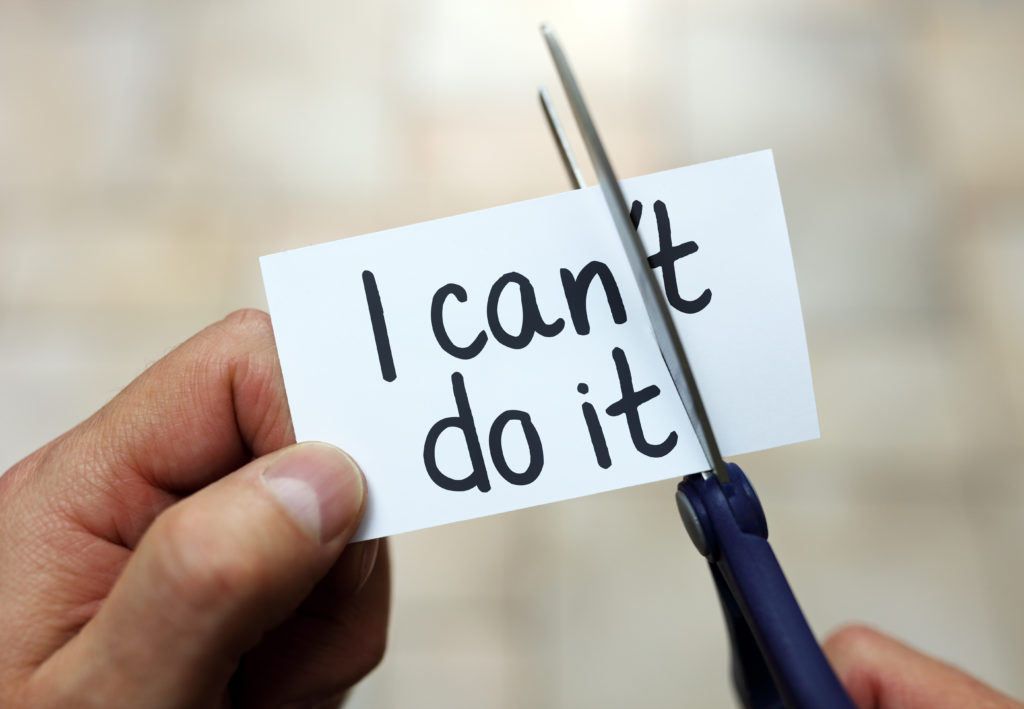
Where does the motivation come from?
To raise your standards you need to have a strong WHY. In other words, what is your reasoning to raise your standards? For example, saying you want to lose weight because everyone you know is trying to lose weight isn’t a strong enough reason. However, saying you want to lose weight so that you can live a longer, healthier life and see your children grow up and be there for them is a prime example, as the reason resonates with you personally, meaning you’re more likely to stick with it.
In order to raise your standards, the first step you would need to do is ask yourself “What are my standards right now?” What are you allowing to happen in your life? Sometimes we fall victim to letting ourselves off the hook because we set ourselves goals that never become a need.
Additional questions to ask yourself:
> What will I accept and no longer accept of myself?
> What standards do I have for the roles that I play in life (Parent, friend, Partner etc)
> Did I set these standards myself?
> Given the goals that I would like to achieve are my current standards hindering me in any way?
> Are my current standards getting in the way of me developing in any of the 8 core areas of my life?
The biggest reason people hate commitment is that when you commit to something (especially when you commit to other people) you HAVE to deliver. When you settle for just “trying your best” you give yourself lower expectations, making it “alright” if you don’t follow through with it because you gave it your “best shot”.
You’re unlikely to ever sink below your standards but how far are you willing to rise above them?
Raise your standards in these 4 areas of your life to help drastically improve the way you live:
Health
Improving the state of your health is so important. Being healthy isn’t all about drinking green juices and eating kale 7 days a week. Imagine being energetic in the morning, ready to take on the world with a spring in your step and a smile on your face. Raise your standards on how much sleep you get, how well you take care of your body and how well you eat and it will take care of you.
Your Focus
Distraction is the absolute worst, it steals both your time and energy – your two greatest assets. Be more focused on what you want, every minute, every hour, and every day. Bring your awareness to this very moment right now. What do you want to be experiencing and doing? Being more focused allows you to be more conscious of your surroundings and make it easy to spot distractions.
Relationships
As much as talking to new people and creating new friendship groups are awesome it’s important to be careful with who you spend your time with. Who you socialise with will have a great impact on what kind of life you would like to have.
As Jim Rhon once said, “You are the average of the five people you spend the most time with”.
Attitudes are contagious, be really picky with who you invest your time in. Your friends should shower you with support, exude positivity and have ambition.
Nobody’s perfect and everyone has bad days and flaws, learn to accept them if you feel that you both will help each other grow and are compatible with each other. When you free yourself from negative people, you are free to be you.
Mindset
Healthy thoughts = Healthy actions. If you want to put quality thoughts into your mind you must create an environment that outputs positive energy.
If you raise the standard of your mindset you will be mentally strong enough to deal with failures and setbacks allowing you to conquer anything you put your mind to.
What happens when you commit to keeping your standards high:
> You increase your sense of self-efficacy
> You begin to believe in yourself more because you’re starting to achieve the goals you set yourself
> You attract more opportunities because you have more clarity behind your actions
> You become more self-aware of your current reality, allowing you to make clear and conscious decisions on your next step
> A higher chance of succeeding at anything you want
When you take steps towards becoming an enhanced version of yourself, you ensure an increased level of confidence, self-respect and self-discipline.
When you’re committed to being all in, you will see through whatever you set out for yourself no matter what obstacles or bumps happen along the way. Your high standards and WILL to succeed in your goals and objectives will be the motivation needed for you to continue on your journey.
Take away,
You don’t get what you WANT in life. You get what you TOLERATE. Once you raise your standards, your life will rise to meet them.
No longer will settling be part of the norm. You will achieve ALL of your Plan A’s because Plan B’s are for people who aren’t willing to sacrifice and give up who they currently are for who they need to be.
This is the year of the breakthrough. Act like it.
Remember: Obstacles will equal opportunities to grow.
Heather’s top tip: Demand excellence from yourself. You’re a force of nature that deserves nothing but the best. Never give up and most of all raise your standards and never settle.
Related blogs:
How to improve your life one day at a time
The ultimate guide for coping with change
How to build lasting self-esteem
Did you know that people on my email list sometimes get exclusive discounts on my products? Join the community and save yourself some coins!
Freshly-squeezed inspiration, and no-nonsense tips + tricks to improve your life delivered to your inbox weekly.
Subscribe to my newsletter
Subscribe
You're all signed up!
Be sure to whitelist our email address so that all the goodies make it to your inbox.







